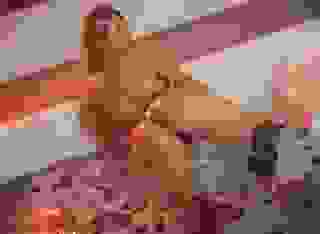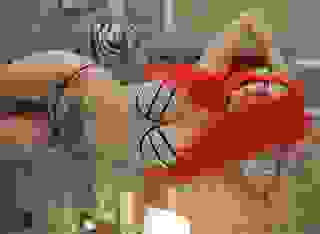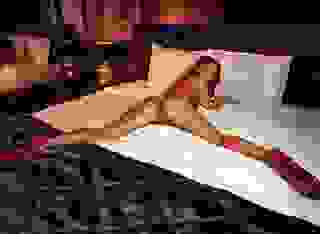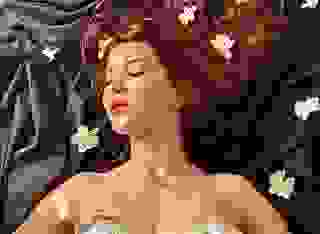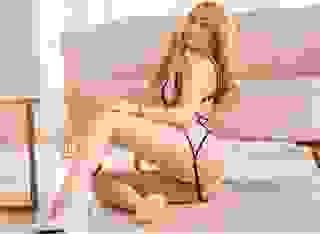- Non-Erotic
- The Checkpoint
- Page 3
Note: You can change font size, font face, and turn on dark mode by clicking the "A" icon tab in the Story Info Box.
You can temporarily switch back to a Classic Literotica® experience during our ongoing public Beta testing. Please consider leaving feedback on issues you experience or suggest improvements.
Click hereApril came and with it news that the Germans had surrendered. It was time for planting. A friend from the village brought his team of horses to plow both fields. There were gaps in the furrows where unexploded shells lay partially buried in the dirt.
Allied teams were slowly moving through the countryside removing or exploding shells but it would be months before they reached the little clearing.
- - - - -
Two years later, the nurse decided to try to find Kurt, the German Lieutenant, and Hank, the American Captain. Had they lived through the war? Had they returned home? She wrote letters to the German but heard nothing back. That didn't necessarily mean anything. Many people in Europe were still refugees or had settled in new places.
It became her fixation and, after waiting a few months for a reply, she decided to go to Kurt's village. She made her way across the border and found the right place. Or what remained of it. It had been hit several times by the Allied bombing campaigns and almost no buildings were still standing. Good fortune smiled on her as she found a cousin of Kurt's who knew where he had gone.
The German was tired of war so he had moved across the border to Switzerland. Colette found him living above his small butcher shop, alive and well.
The Lieutenant had fought with the mortar unit until the surrender. Like many German officers, he had been held and interrogated by the Americans. Once they were convinced he was neither a Nazi nor a war criminal, they had let him go.
Kurt laughed as he told Colette, "Sometimes I wish I was back there. Those Americans ate well and so did the prisoners. The guards were decent people."
He sat silent. "One of the guards gave me a piece of cake his mother had sent him. He told me she sent him one every month. The piece he gave me was still fresh. Can you imagine? We were almost starving at the end and the Americans were shipping fresh cake across the ocean. How could we possibly have won against a country that could do that?"
Kurt began weeping. Colette held him until he stopped.
"I want to see that country. It must be full of wonders. Will you come with me? To find Hank and see that great country?"
Without hesitation, Colette agreed. Kurt and Hank were like brothers to her. They had protected her and shared so much in such a short time.
Their journey began as a reversal of Colette's trip. First back to Kurt's village where he sold his butcher shop to his cousin. Then back to the little clearing so the nurse could tell her parents she was leaving for America.
Her parents were not pleased with Kurt until Colette explained how he had protected them from other deserters and later, with the American, protected them from the seven criminals. They cried as their daughter prepared to leave but they wished her good luck. Her mother hugged Kurt and whispered, "Keep her safe."
The old woman slowly crossed the road. Her husband had died while Colette was gone. The old woman knew she would soon follow. She took Colette's hands in her own.
"You have been like a daughter to us these last years. Our son died in the war. You are the only family I have left."
The woman's hands shook as she removed her engagement ring and her wedding ring. Rings she had hidden from the Germans during the war. She pressed them into Colette's hand.
"I hope you fall in love and have many children. Tell them about us, so we are remembered."
The old woman hobbled away. Colette closed her hand around the rings and cried.
Kurt and Colette used the rings to pretend to be husband and wife. The charade minimized questions during their travels. In the nearby village, they encountered an American with a car and a French bride. The newlyweds were heading to Le Havre where they would catch a ship across the ocean.
Told about Hank, the rancher in Colorado, the American invited them to ride with him and his wife.
"I don't know much about Colorado," he explained, "I'm from New Jersey."
It was almost 500 kilometers to Le Havre and the trip took three days. Many roads had been patched together after repeated bombings so one couldn't drive very fast. In addition, there were still many people on the move, making roads congested.
Some were like Kurt and Colette, heading for the coast to start a new life elsewhere. Some were refugees trying to return home. Some found home no longer existed and were looking for a new start.
At the port, American soldiers were checking papers for all those wanting to head to the United States. Fortunately, Kurt had been given paperwork when he had been released as a prisoner of war that allowed him to board with little questioning.
Colette had to answer more questions but once she said she was a nurse she was allowed to board also. Medical professionals, especially civilian nurses, were in short supply in the States. Many of the women who had served as Army nurses had gone home, settled down, and were starting families. They had seen enough patients on the battlefield to last a lifetime. Other women stayed in the Army to tend to the wounded soldiers who still needed care.
The ship they were on was slow and it took almost two weeks to arrive in New York. To save money, Kurt and Colette were in second class. Not as bad as third class but still overcrowded and underserved. Mealtime was the worst. If you arrived late, you were likely to eat only random scraps left over from the earlier feedings.
The first time they arrived late, it reminded Colette of the K rations the American soldiers had given her during the assault through the clearing.
"They had meat and cheese and biscuits in them! One had a chocolate bar. Another had caramels. There were cigarettes and gum. Little packets of salt and sugar. Things we could never get during the war. It's like you said about the cake. How can you defeat people who can afford to put gum and candy in soldier's rations?"
Kurt and Colette shared a cabin with two other couples. By unspoken agreement, the men all slept on the lower berth of the bunk bed. If there were to be any trouble, the men could be up and respond quickly.
Fortunately, there wasn't any trouble. The time passed quickly with card games, impromptu dances, and strolls around the deck. There were people from all over Europe as well as a few Americans. They were all heading for the New World to start a new life, in one way or another.
The ship docked in New Jersey. The skyline of New York City rose across the river. Both travelers were overwhelmed. The biggest city they had ever seen was Le Havre and New York was impossibly bigger. It was a temptation they couldn't resist.
Kurt and Colette took the bus to the city. They found an inexpensive hotel in Greenwich Village and ate at a tiny diner in the next block.
They were amazed at everything. Europe was in ruins, the economy barely functioning, people struggling to find food. The whole continent surviving largely because of the Marshall Plan.
Here nothing had been touched by the war. The skyscrapers had glass in the windows, not plywood. The church steeples had not been tumbled down by air raids and artillery shelling. The food was plentiful. Even the mannequins wore silk stockings.
At the tiny diner, they ate pork chops, fresh vegetables, ice cream, and apple cobbler. There was tea and coffee and something called Pepsi to drink. They could barely finish, there was so much food.
It was too much, almost sickening compared to what they were used to. They had spent months rebuilding the old couple's home in France. Now they heard that hundreds of homes were being built almost overnight in Long Island.
Before they left, they asked at the hotel how to get to Colorado.
"I don't know exactly. It's out west somewhere. Go down to Grand Central Station. They can get you on a train or a bus headed in that direction."
That is what they did. At Grand Central Station, they realized a train was going to be too expensive. They had money left over from selling Kurt's butcher shop and some money Colette had saved but it would take most of it to take the train.
Once they got to Colorado, they would need money to find Hank, so they bought tickets for the bus. The cheapest tickets were on a regional bus line to Chicago. It would take them four days and three nights to reach their destination.
"Is Chicago close to Colorado?" Kurt asked.
"About halfway, I guess," replied the ticket agent. He didn't seem to think that was a big problem.
Four days to get halfway to Colorado? And Colorado was only partway across the whole country? You could drive across most of Europe in four days. No wonder America could send cake across the ocean in the middle of a war and give chocolate and caramels to a million soldiers.
Colette and Kurt were just beginning to understand the massive size of the new country. The bus they boarded was a local, meaning it stopped at a variety of smaller cities and towns along the way. Kurt and Colette looked out the window at the countryside.
The urban environs of New York City soon gave way to agricultural land in western New Jersey. Philadelphia followed. Others on the bus told them about the role of Philadelphia in the founding of America.
There were dairy farms with red barns, mushroom farms (who knew?), and wheat fields as they passed through the rolling hills of central Pennsylvania. Nearing Pittsburgh, steel mills threw off great clouds of smoke as they produced raw material for cars and refrigerators and all sorts of other goods. The same mills had once produced steel for tanks and planes and rifles.
They skirted the gentle shore of Lake Erie for miles and miles until the bus reached Cleveland, the first big city since New York. Farms gave way to factories. Kurt was surprised to learn from a fellow traveler that Cleveland was a port city, with ships sailing to the Atlantic via the St Lawrence River.
Factories and small cities continued to follow the shoreline until Toledo. There the farms returned. The land was flatter and the farms were bigger than in Pennsylvania.
The farms were of special interest to Colette. She had grown up as a farmer's daughter. Their farm was considered large at 100 acres. Now she watched as the smallest farms to be seen were that size. She watched as miles of perfectly good farmland was covered by a forest of trees.
"Who owns it? Do they cut the trees for lumber? Why don't they farm it?"
An older man peered out the window. He was wearing coveralls and said he was a dairy farmer in Illinois.
"It's just empty land. Probably nobody owns it." He looked at the French woman quizzically. "There's plenty of trees to cut elsewhere. Better trees than those. And there's already plenty of land for farming."
He shrugged as if to say 'no big deal'. Colette couldn't understand it. Who would let good farmland go to waste? How could no one own it?
But the longer she watched out the window, the more she understood. There was so much land. It went on and on and on. There were plenty of farms and cities; plenty of towns and rivers and lakes. Yet, in between, there was always more land, empty and unused.
It wasn't until they got to a large city that the empty land disappeared. Except it didn't really disappear. When Colette looked, it was still there. Tucked along a riverbank behind a building would be a stand of trees. A rocky hill would jut up covered in brush. Even as they made their way into downtown Chicago, Colette could see vacant lots covered in weeds and a few saplings.
Kurt and Colette spent three days in Chicago at another inexpensive hotel. They needed to bathe and rest after four days on the bus, never getting off except for meals and bathroom breaks.
They need to stretch their limbs so they walked through the city, admiring the buildings and stores. They visited Marshal Fields, the 12 story behemoth of a store, and Kurt insisted on buying a scarf for Colette.
The pair chatted with locals in small parks and on front stoops. The duo wasn't quite as overwhelmed as in New York. They were getting used to America. They sampled Chicago deep dish pizza which they agreed was the most delicious thing they had ever eaten.
Finally, it was back on the bus again. A nicer bus with more comfortable seats. It even had a bathroom on board. Would wonders never cease?
They headed across western Illinois, Iowa, and Nebraska. America's agricultural heartland. The rolling hills disappeared. The land was flat and got flatter. The duo discovered how much more land America had. It was mile after mile after mile of corn, wheat, rye, barley, and soybeans. There was the occasional grain silo, a few houses, a small crossroads town with a gas station and then more miles of crops swaying in the wind.
Colette could never have imagined it if she hadn't seen it herself. It was all so big and all so new. She glimpsed a sign that said 'Portersville, Established 1876'.
Europe was so old in comparison. Her uncle's house, the one destroyed at the little clearing in France, had been older than that. The nearby village had houses dating to the 1400s.
This country was new and raw. She found it exciting. Kurt, the butcher, found it boring until they reached western Nebraska. Then they began to get glimpses of cattle on the range. Kurt was confused by the barb wire fences that stretched for miles but only had a few dozen cattle visible.
A man who had just joined the bus said, "Oh, they just let the cattle out to graze. There might be 1,000 head on that ranch. You just don't see most of them."
"How big is the ranch?"
"Maybe 500 acres or more. Here in Nebraska, they'll put maybe 1,000 head on 100 acres or so and rotate them around to different pastures."
"Do they raise cattle in Colorado?"
"Oh yeah, lots of cattle. But they generally do it the old fashioned way. They just let the cattle out to wander wherever they want until its time to round them up. In Colorado, 500 acres is a small ranch, hardly worth talking about."
The bus let them out in Denver. They breathed in the fresh mountain air. Kurt felt himself relax at the sight of the Rockies. He had grown up with the Alps always in sight and hadn't realized how much he had missed the mountains.
The contrast between the Rockies to the west and the plains to the east was startling. The Rockies seemed to rise straight from the plains with no gentle foothills as a transition. The peaks were tall and sharp. Not like the mountains in the east or even the Alps. The Alps were as tall, maybe taller, but they were softer. The peaks had been worn down by weather.
Once again, Kurt and Colette found an inexpensive hotel. Now the hard part of the search would begin. All they knew was that Hank Powell used to have a ranch somewhere between Last Chance and Limon. They asked around at the hotel and the restaurant until they found someone familiar with the area.
"Don't know Hank Powell myself. There's a bunch of ranches in that area. But it's only 40 miles from Last Chance to Limon so it shouldn't be too hard to find him. Unless he's closer to Anton or Arriba. They're about 30 miles further east."
"So we have to search 1,200 square miles for our friend?" asked Kurt, clearly surprised at the effort that would be required.
"Yeah, about that," said the stranger as he paid his lunch bill, "Shouldn't take too long, I wouldn't think."
Kurt and Colette weren't used to life and distance in Colorado. They didn't understand that Last Chance, Limon, Anton, and Arriba were the only four towns in the area. They didn't understand there were only four main roads through the area. They didn't realize there were only 5,000 people in an area twice the size of Luxembourg.
They decided taking the bus would be a waste of time. It would take a day to move from town to town on the local bus and, once they arrived, they wouldn't be able to visit any of the surrounding ranches. The clerk at the hotel solved their problem. He called his uncle who owned a car dealership.
The uncle offered to rent them a car for seven days. It would cost half their remaining money. If it broke down, they would have to fix it themselves. He also wanted some sort of collateral to make sure they brought the car back. Colette gave him the engagement ring that had been given to her by the old woman in France.
Deal arranged, Kurt and Colette spent one more night in the hotel. From now on, they decided, they would sleep in the car to save money.
The pair set off early in the morning. It took them almost four hours to reach Last Chance. The roads weren't good and they got lost twice getting out of Denver. Last Chance was barely a town. There were half a dozen homes, a church, a diner, a gas station, and a feed and hardware store. The couple ate a light lunch and decided to fill the car up with gas. They had been warned that gas stations were few and far between.
"You know a man named Hank Powell? He's supposed to live around here somewhere," Kurt asked in his German accent.
The gas station attendant looked wary. What did a foreigner want with Hank Powell?
Colette recognized the look. She jumped in.
"We met him during the war. He helped me and my friend out. We owe him our lives. He told us he lived around here. We wanted to thank him."
The attendant looked her over closely. An attractive unmarried woman with a French accent? The attendant couldn't resist.
"Head down that way about 20, 25 miles," he said pointing to a crossroad. "You'll see a sign for Peaceful Clearing Ranch on the left. Take that road about 10 miles until you get to the house."
The man appraised them again. Not ranchers for sure.
"There's a couple gates on the road. Make sure you close them behind you so the cattle don't get out."
Hank rode his horse toward the house. The sun was setting. He had spent the day fixing fences and making sure the water barrels were full. Cattle ranching meant long and lonely days.
There was a car parked by the house. He didn't recognize it. Cattle ranching involved lots of land and few people. He knew everyone, and their vehicles, within thirty miles.
There was someone on the porch, in the old rocking chair. Someone else on the steps. Hank loosened the rifle in its holder. Better safe than sorry. More than one rancher had been robbed by strangers who thought all cowboys kept their money under a mattress.
The people on the porch stood and walked toward him. A man and a woman. The woman started to run, holding her hat with one hand and waving with the other. The man gave a thumbs up.
Hank touched his heels to his horse's flanks. The horse sped up to a fast trot down the packed dirt driveway.
He reined his horse to a stop and got off in one fluid motion. Colette jumped into his arms, giving him a kiss and a hug. Kurt wasn't far behind, a grin on his face.
"It took us a while to find you, my friend. America is a big place."
They shook hands and hugged. The three friends went inside to swap stories and eat.
- - - - -
Kurt and Colette never left Colorado.
Two days after they arrived, there was an accident at a neighboring ranch. Colette went with Hank and used her nursing skills to save the man's leg. She became the person who was called whenever there was an accident or a serious illness or a baby that needed to be delivered.
A few months later, Colette passed the nurses' exam to become fully licensed in Colorado. She and a doctor in Anton were the only medical people to serve 1,200 square miles.
Three years later, she married the man whose leg she had saved. She wore the wedding and engagement rings the old woman had given her. Colette's two sons were named after her two friends from the war.
Kurt used his skills as a butcher to create a new business. He talked a Denver hotel into letting him provide fresh beef steaks for their restaurant. Hank and neighboring ranchers would give him high quality cattle to butcher.


